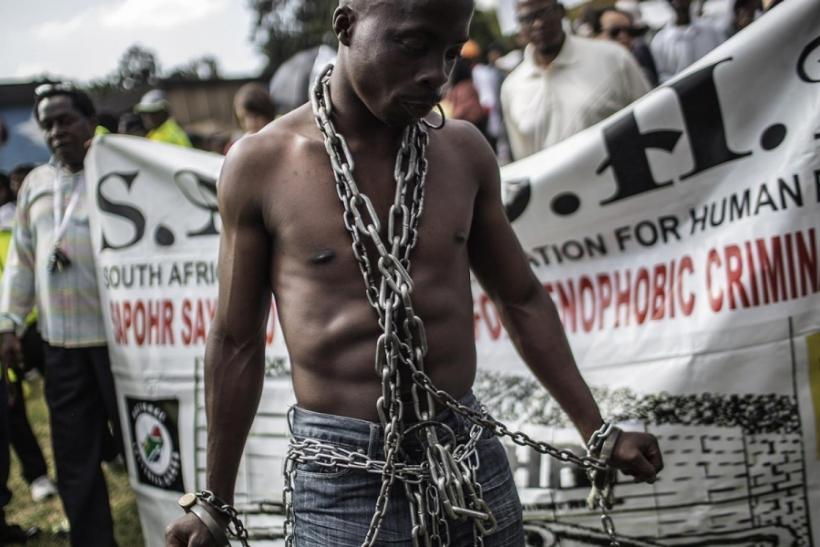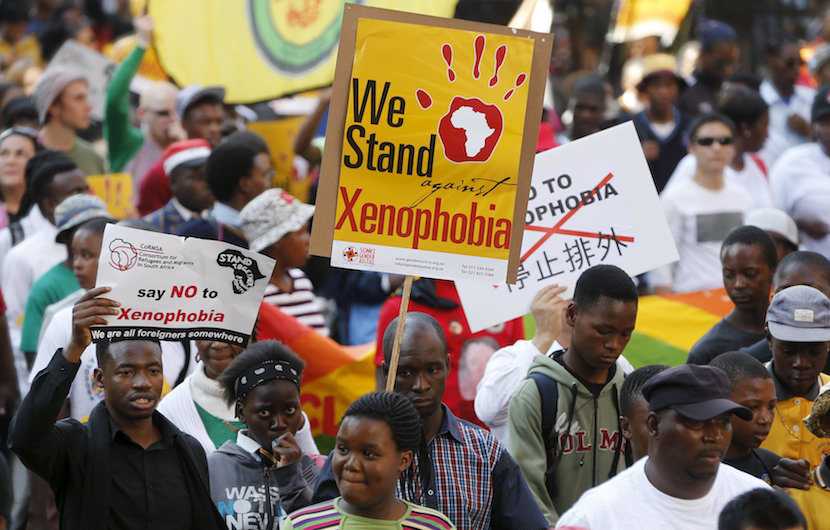This is our last article, for now, on the topic of African Poverty. Please note that in the future the African Camp Fire Stories (ACFS) Podcast will cover this topic in more detail, in the form of an audio series.
So stay tuned for that series!
Now that we have reached the end of this discussion, what can we say overall about the sources of poverty?
Well, articles Part One to Part Seven show that there is not one theory, or explanation, that can be said to explain poverty on its own. The theories that we covered on this series of articles are taken from different kinds of experts.
Please note that our research for this topic was not limited to the experts that we mention below. But the experts mentioned below were seen by us as the best representatives for particular theories. Note that all the experts mentioned below were used in this series, from Part One to Part Seven. For more detail on the views represented by these experts, please check out our previous instalments of this article series.
Ian Morris is an Archaeologist turned Historian, who uses a lot of historical statistics to underpin his theories. His view of poverty is based on geography. He believes that certain countries, or even continents, were incorrectly situated geographically. Thus standing no chance of acquiring economic success.
But then we presented you with theories by Daron Acemoglu and James A. Robinson. Those theories disagree with a lot of theories that have been propounded for a long time. They disagree with the geography theory. They don’t think climate has anything to do with economic success of a people. They don’t agree that culture has to do with poverty.
Their theories are based around the effectiveness, or lack thereof, of political systems. Poorly designed political systems, or dysfunctional political systems, are the reason they give for poverty.
But then again, Acemoglu and Robinson are Economists; Robinson is also a Political Scientist. This isn’t to denigrate these authors. We are mentioning their occupations only to explain the point that it seems that the experts see the problem of poverty through the lens of their specialisations. For Acemoglu and Robinson, they are concerned about good economics. And good economics are nothing without good politics.
Francis Fukayama believes that the STATE is the basis for all good or bad things that happen to a country. The state has to be functional. Without a good state, nothing good happens. But then again, Francis Fukayama is a Political Scientist and a Political Economist. His views thus tend to be about the state and its policies.
Martin Meredith is a Historian and a Journalist. When it comes to Africa and its history, there are hardly any other authors who have a similar output as him. He has covered Africa as a Journalist. He has also written a slew of books about the African continent. His arguments about Africa’s problems have a lot to do with the nature of African leaders after independence from colonisation.
Meredith’s view is simply that the majority of post-independence African leadership was horrendous. And by the way, this isn’t just his view. Anyone who hasn’t been living under a rock knows that Africa has had a raw deal in terms of quality of leaders. Meredith is as confused as we are about how come so many leaders who selfishly sacrificed so much in the fight for freedom turned out to be the main people who have caused so much strife for their people!!
Views about causes of poverty depend on many factors, including the focus of the researcher or author in question. Economists focus on Economic issues. Historians focus on historical factors and events. Political Scientists focus on political policies. Sociologists focus on social factors. Anthropologists focus on cultural causes. Geographers focus on geographical factors, and sometimes also on climate issues.
The problem for us, the people who want to consolidate these views into one coherent theory, is that we can’t. A lot of these theories clash with each other. A lot of them are incompatible. So, if you want to formulate a theory about African poverty, the best you can do is to put together a list of compatible theories; a list of theories that do not clash.

The geography and climate argument is very difficult for us to accept. But note that this is just our opinion. There are good theories out there about geography. In ancient times, it’s easy to see that most of Africa being below the Sahara was a disadvantage. That the Sahara was a very serious barrier before the times of modern transportation and communications might seem like a joke to a modern person.
But, unfortunately, it was a barrier. Have you ever wondered why North Africa had Egypt, Carthage, Numidia, the Moors and Berbers who conquered Spain and Sicily – and Sub-Saharan Africa does not have such legendary states and civilisations? This large desert made us to be left out of many inventions and developments that occurred in the area around the Mediterranean – an area that is correctly called the Cradle Of Civilisation.

Sub-Saharan Africa was isolated from all the areas of the world that developed early. It was isolated from Egypt and later Carthage, isolated from Mesopotamia, isolated from Rome and Greece, and definitely from China and the rest of Asia. It is no wonder than that even as late as the 1800s, there were to be found a lot of our areas in Sub-Saharan Africa that must have looked like they were straight from 2 000 BC in the eyes of the white people who were new arrivals.

This backwardness was why we were conquered so easily. A lot of the European armies that conquered large tracts of land in Africa were usually outnumbered by us 50 to 1. But because we had been left out of the developmental race, we were fighting England or France or Portugal with weapons that hadn’t been used in those countries since the days before those countries were formally founded in the so-called Middle Ages, after the fall of the Western Roman Empire.
We were using weapons that Julius Caesar would have been familiar with – but that would have seemed too ancient for Napoleon Bonaparte.

So, geography for OLD Sub-Saharan Africa, is an acceptable reason for our being left out. But nowadays, geography is no longer a barrier – and it’s been this way for the past 120 or so years. The modern day Congo isn’t poor because of geography nor is that the reason Zimbabwe is struggling.

We therefore agree with theories that have to do with political systems, states and the quality of political leadership for modern Africa. In post-independence Africa these reasons are glaringly clear. Show me a poor African country and I’ll show you bad leaders – either currently or in that country’s recent past.

Recently, Robert Mugabe passed away. Any death is a tragedy – for the family members, friends and the many people who loved Mugabe. But we should not forget that leaders like him have cost us too much as Africans. Having said that, we should also appreciate that Mugabe and leaders like him fought for our freedom, against staggering odds. These freedom fighters were fighting against First World Europe!!!! That is a feat that we should not forget.

But we can hold two opposing views at the same time – that, according to Albert Einstein, is the definite sign of intelligence. Mugabe, and many African leaders like him, are both heroes and villains to us!! Those who think they ARE ONLY villains are wrong. And those that think they ARE ONLY heroes are wrong.

They freed us, only to tie us onto a debilitating poverty later on.
We owe our poverty to the same people who fought for our freedom!!
Don’t be left out:
Note also that ACFS is primarily an audio based podcast
Check out our audio podcast episodes on this website. Currently we are on the Cold War Pawns series. It’s a very gripping story of the Cold War and its impact on the African continent. In the near future we are going to tackle the topic of Xenophobia and Hatred. So stay tuned to our Podcast.




